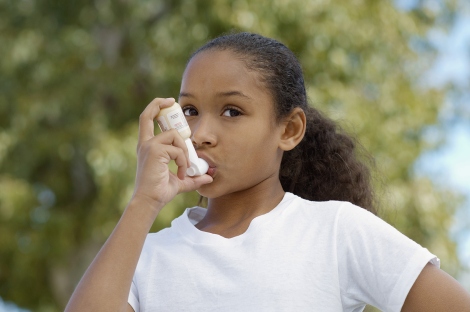Discrimination Contributes to Asthma Rates in African-American, Latino Children
 Children’s exposure to racial and ethnic discrimination has been linked to their likelihood of having asthma in a new study.
Children’s exposure to racial and ethnic discrimination has been linked to their likelihood of having asthma in a new study.
Asthma is a common childhood ailment that can be exacerbated by psychosocial stress. An estimated one in 10 children in the U.S. suffers from asthma, but the condition disproportionately affects African-American and Latino children.
UC San Francisco researchers found that African-American children who reported experiencing discrimination had 78 percent greater odds of having asthma than their peers who didn’t report discrimination. Moreover, the harsher the perceived discrimination, the greater the odds of having asthma, and the more likely the asthma was poorly managed and therefore more debilitating.
The association was less clear among Latino children and seemed to vary based on socioeconomic status. Asthma was linked with discrimination in Mexican Americans of low socioeconomic status and in other Latino groups of high socioeconomic status. The researchers speculate that those from less economically stressful backgrounds may be better at identifying racist attacks.
Participants Asked About Discrimination
The study, published in the April 2017 edition of Chest, included more than 950 African-American and 2,600 Latino youths between the ages of eight and 21, with and without asthma. They were asked in a questionnaire about their experience of discrimination based on race, ethnicity, color, or language in situations including school, getting medical care, getting services in a store or restaurant, and in the street or other public setting.
Among the African-American children, 49 percent of those with asthma reported experiencing discrimination, compared to 42.2 percent of those without asthma.
“Discrimination is a real and everyday experience for many Americans, especially for those from minority communities,” said Neeta Thakur, MD, MPH, assistant professor of medicine and first author of the study. “In this study, we demonstrate how this seemingly unrelated stressor is directly related to asthma and its associated outcomes in African-Americans.”
Study Mirrors Findings for Adults
While the relationship between discrimination and physical health in adults is well known, less is understood about the role it plays in children. This is the first study to link discrimination with asthma in African-American children. The findings are consistent with research that has linked discrimination with subsequent asthma diagnosis in African-American women.
The researchers note that because the study did not follow the children over time, it cannot establish a causal relationship between asthma and perceived discrimination.
They hope future research will illuminate the biological mechanisms by which psychosocial stress affects asthma. And they say discrimination may have wider health implications, beyond asthma, in contributing to health inequity in general among U.S. children.